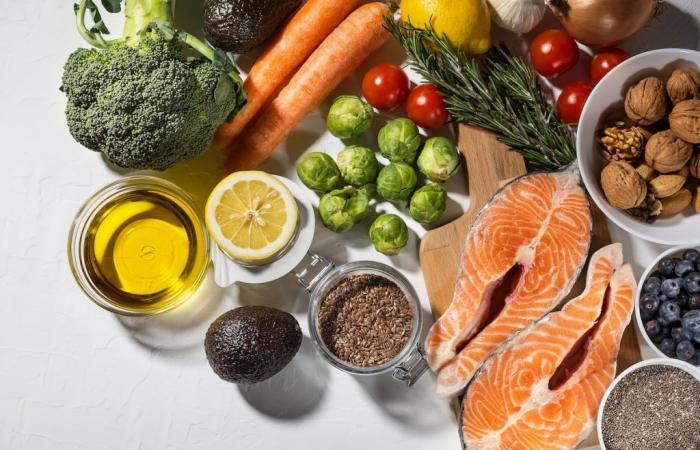A mediterranean diet It is considered one of the healthiest in the world. In the 1960s, researchers realized that people who lived in regions bathed by the Mediterranean Seasuch as Portugal, Spain, Morocco, Italy, Greece, Cyprus and Croatia, had fewer health problems, especially cardiovascular ones, due to their table habits.
In the following decades, the diet continued to arouse the curiosity of scientists across the planet. Today, there are several studies that demonstrate its benefits in relation to numerous health conditions – and not just those linked to the heart –, such as the prevention and control of type 2 diabetes and obesity. It is also linked to protection against neurodegenerative processes, such as those that lead to Alzheimer’s.
No wonder, in 2013, the Mediterranean diet was considered Intangible Cultural Heritage of Humanityby the United Nations Educational, Scientific and Cultural Organization, UNESCO.
What is the Mediterranean diet?
It is a diet composed essentially of natural foods, such as fruits, vegetables, cereals and fish. Dairy products such as yogurt and cheese and, exceptionally, red meat are also consumed less frequently.
The main source of fat in the diet is oil, used for seasoning and food production. It is also worth highlighting that salt is not used as much – the preference is for aromatic herbs, in addition to garlic and onion, according to the Portuguese Association of Nutritionists.
“You ultra-processed foods and white flour they are not usually part of this diet”, highlights nutritionist Juliana Watanabe, specialized in the Mediterranean diet from the International University of Valencia, in Spain.
In relation to drinks, the protagonist is water, consumed in abundance throughout the day. Furthermore, the consumption of teas without added sugar is also frequent and, eventually, the wine appears at the table.
“Wine is a relatively controversial element of the Mediterranean diet. In general, it is important that it is consumed in small quantities, that is, one glass during the meal”, he considers.
Another important aspect of the Mediterranean diet highlighted by the nutritionist is that it is a concept that goes beyond food. Currently, according to Juliana, there is talk of a Mediterranean lifestyle, which combines nutrition with frequent physical activity, social connections and concern for sustainability.
“In this lifestyle, it is preferable to eat around the table and with family, for example. Furthermore, physical activity is usually done outdoors and in groups. It is also recommended to prioritize seasonal foods and foods from local consumers”, he explains.
Mediterranean diet in national version
As the traditional Mediterranean diet is based on products typical of the countries bathed by the Mediterranean Sea, their exact incorporation into our routine tends to be expensive and difficult. With that in mind, the Estadão talked to experts to suggest more accessible and traditional Brazilian options to reproduce this menu.
Check out:
- Vegetable proteins: They are a fundamental part of the Mediterranean diet. Traditionally, this food group consists of chickpeas, lentils, peas, among others. In Brazil, Juliana’s suggestion is to value beans. “It is a culturally important food in Brazil, in addition to being very nutritious. In Mediterranean countries, on the other hand, it is rare to find some beans, such as carioca,” she comments.
- Animal proteins: The expert points to salmon and canned foods, such as tuna and sardines, as being the most common in Mediterranean regions. According to her, it is worth incorporating canned goods and Brazilian fish into the meal. “The ideal is to look for fish typical of the region and time of year. These tend to be healthier and more accessible,” she points out. Dairy products and low-fat cheeses can also be incorporated into your routine from time to time.
- Fruits: The group occupies the dessert space in the Mediterranean diet and, traditionally, red fruits are the most popular, such as raspberries, strawberries and blueberries. According to nutritionist Pamela Lanza, specialized in cardiovascular prevention at the Instituto do Coração (InCor), in São Paulo, these options are important due to their antioxidant capacity, which protects against arterial inflammation and, consequently, against heart attack. As these fruits tend to be expensive in Brazil, the expert suggests some equally healthy substitutes. “Are the ‘berries’ Brazilian varieties, such as jabuticaba, blackberry, strawberry and acerola”, he explains.
- Greens and vegetables: In this case, the possibilities are also wide. “There are several Brazilian options, such as zucchini, eggplant and endive. The more diverse, the better”, advises Juliana.
- Olive oil: Filled with monounsaturated fats (considered beneficial to health) and antioxidants (protectors of our cells), it is one of the pillars of the Mediterranean diet, but tends to have high prices in Brazil. “Despite having better health effects, extra virgin olive oil is not mandatory,” he says. This type is obtained from the first pressing of olives and is therefore considered richer in nutrients – and more expensive. For everyday life, she says it’s okay to prioritize virgin olive oil. The InCor nutritionist says that another option is to use canola or soybean oils. While the first has monounsaturated fats and a little omega-3, the second is a source of polyunsaturated fats, of which omegas 3 and 6 stand out.
- Cereals: For Brazilians, Juliana suggests consuming typical products, such as brown rice, cassava, tapioca, oats and corn. The tip is to always favor what is made with whole grains, because it contains more nutrients and also fiber, substances that make you feel satiated and favor the intestinal microbiota (and, as a consequence, the rest of the body).
- Oilseeds: The group is present in the Mediterranean diet, and is represented by walnuts, pistachios and hazelnuts. In Brazil, we have more accessible versions, such as peanuts and cashew and Pará nuts.
- Wine: The best option is to replace it with whole grape juice, which is equally rich in protective compounds, but has the advantage of not containing alcohol, an element that has been contraindicated by science. The juice must be whole, without added sugar and preservatives.
Tags: Mediterranean diet Brazilian version adapt praised menu world
--





